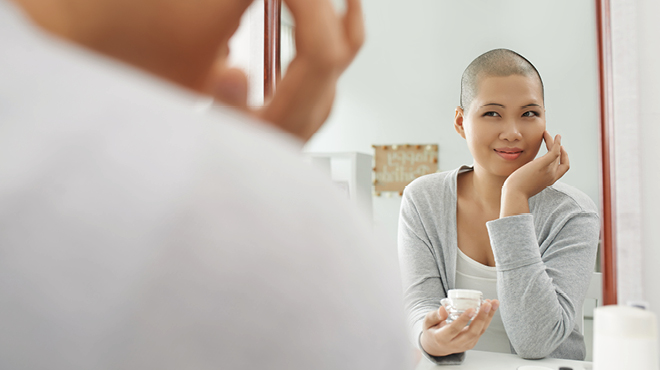Stopping chronic lymphedema in its tracks

Lymphedema is a common side effect of cancer and its treatments. It occurs when tissues swell due to the buildup of lymph fluid that usually drains through the body's lymphatic system. Lymphedema can lead to pain, swelling, limited range of motion, infections and skin changes.
About 40% of people with breast cancer will develop lymphedema within the first five years of diagnosis, usually in the arm or chest wall. A new surveillance system using bioimpedance technology aims at lowering this risk. A randomized control study found that 92% of cancer survivors in a lymphedema surveillance program didn't develop chronic lymphedema.
Lymphedema can be triggered in many ways during a cancer journey. The most common is the removal of lymph nodes during cancer surgery. Lymphedema also may develop because of cancer's location. A tumor can obstruct the lymph system, affecting drainage and causing swelling. Finally, radiation can cause tissue to tense and scar tissue to form, leading to drainage issues and swelling.
Bioimpedance surveillance
Lymphedema is a chronic condition. It's important to catch it early before it causes pain, limited motion and skin issues.
To accomplish this, patients diagnosed with breast cancer complete a baseline assessment of the amount of fluid in and out of the cells in their bodies. This is done before cancer surgery and treatment using bioimpedance technology.
The bioimpedance device looks like a standard scale. Patients step onto the machine with two electrodes on their feet and two electrodes held in their hands. This painless scan takes about 30 seconds to complete.
The first scan provides a baseline measurement for each patient. Scans are repeated every three months for two years and then every six months. Bioimpedance technology can identify tiny changes in a patient's baseline measurements, often before the patient notices symptoms or tape measurements in the clinic detect changes.
Preventive treatment plans
Using scan measurements as a guide, certified lymphedema therapists develop preventive treatment plans to lower the risk of lymphedema.
For example, when patients' scan values are higher than their baseline numbers, they will be directed to wear a compression sleeve for 12 hours a day for four weeks. Compression keeps lymph from pooling and lymphedema from developing. If scan values are at or near the previous baseline, patients are considered free of lymphedema. If symptoms don't resolve and values remain elevated, patients undergo complete decongestive therapy to address swelling and reduce symptoms.
Complete decongestive therapy is noninvasive treatment for lymphedema including compression, exercise, stretching, scar management and skin care routines. Skin care is important because there is a higher risk of skin infections if you have lymphedema.
I've found that many women don't like to complain about bothersome side effects, especially after being treated for cancer. They often tell me they're happy to have survived and don't want to grumble about pain, weakness or scars due to lymphedema.
Cancer survivors don't need to live with and accept lymphedema. Prevention and treatment options can make a significant difference in the quality of their lives.
Health care teams want to help patients get back to their lives without restrictions. A lymphedema surveillance program with individualized treatment plans helps minimize the risk of chronic lymphedema and helps survivors avoid unnecessary painful side effects after cancer.
Bioimpedance monitoring for lymphedema isn't available at all Mayo Clinic Health System locations. Check with your preferred location in advance.
Joy Macheel is a physical therapist and certified lymphedema therapist in Mankato, Minnesota.



